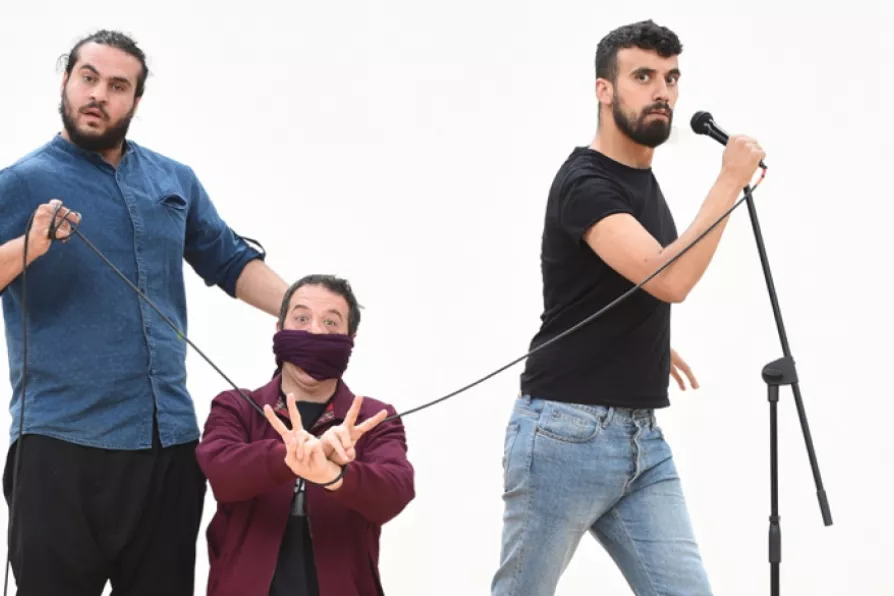FIONA O’CONNOR and MARIA DUARTE review State of Statelessness, Rental Family, 28 Years Later: The Bone Temple, and The Rip
What’s so funny about the Israeli occupation?
Firebrand comedian Mark Thomas and Palestinian actors Faisal Abualheja and Alaa Shehada are about to answer that question in Showtime from the Frontline. JOE GILL reports

 Full of gags: Showtime From the Frontline
Full of gags: Showtime From the Frontline
HAVE you heard the one about the two Palestinian actors and the British political comedian? You soon will.
Showtime From the Frontline is touring Britain from next week and, bringing this newly formed trio led by veteran troublemaker-in-chief Mark Thomas to a theatre near you, it has that unlikely subject for comedy, the Israeli occupation, in its sights.
The fact that it’s happening at all is something of a minor miracle, given the huge obstacles Faisal Abualheja and Alaa Shehada faced just getting out of the occupied West Bank to Britain.
Similar stories

GEORGE FOGARTY is captivated by a brilliant one-man show depicting life in HMP Strangeways

ISSAM MAKHOUL, former member of the Knesset (Israeli Parliament) and currently president of Hadash (the Democratic Front for Peace and Equality), talks to Noah Tucker

HENRY BELL introduces an initiative to bring Palestinian artists to the Edinburgh festival, gives some context, and appeals for your support











